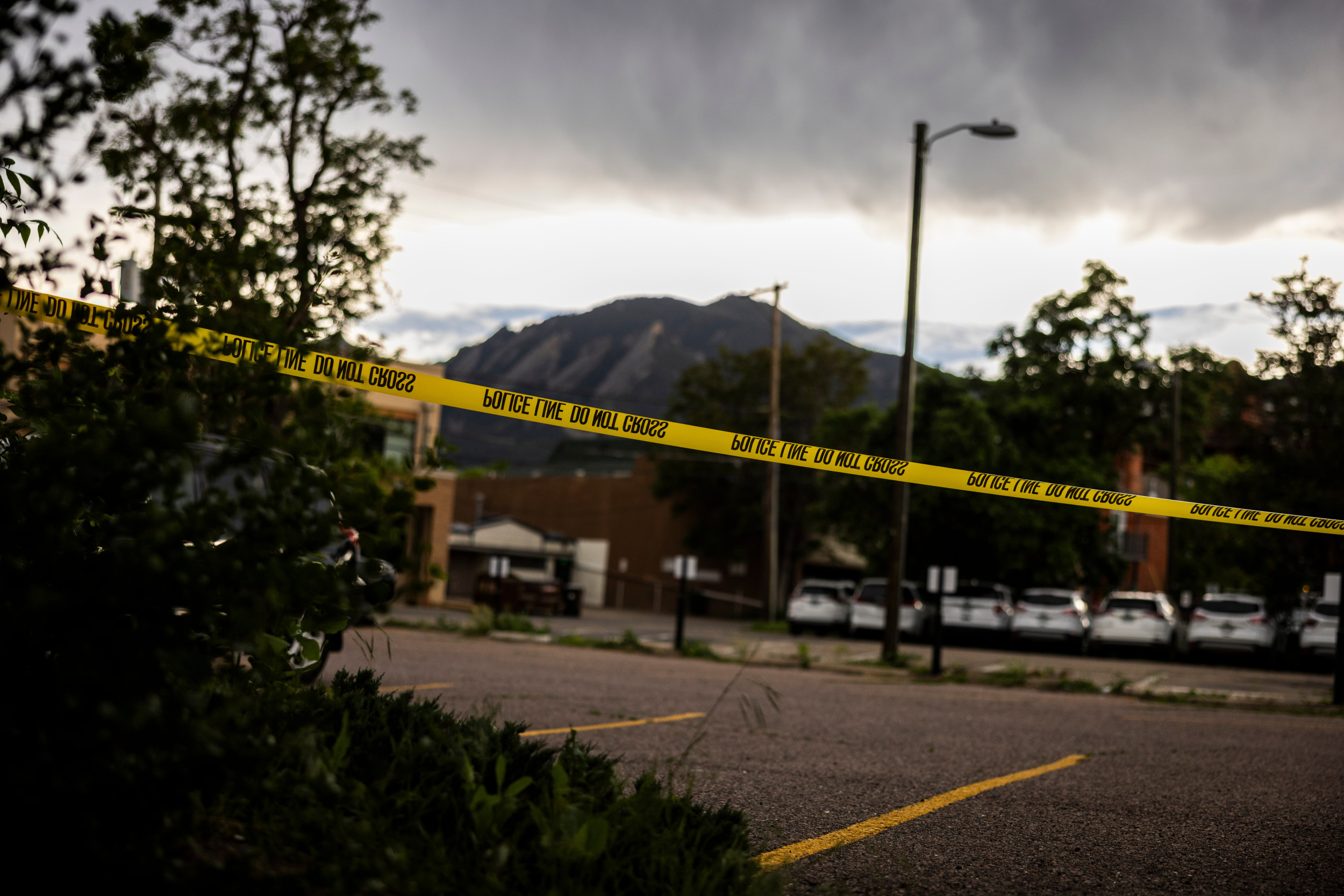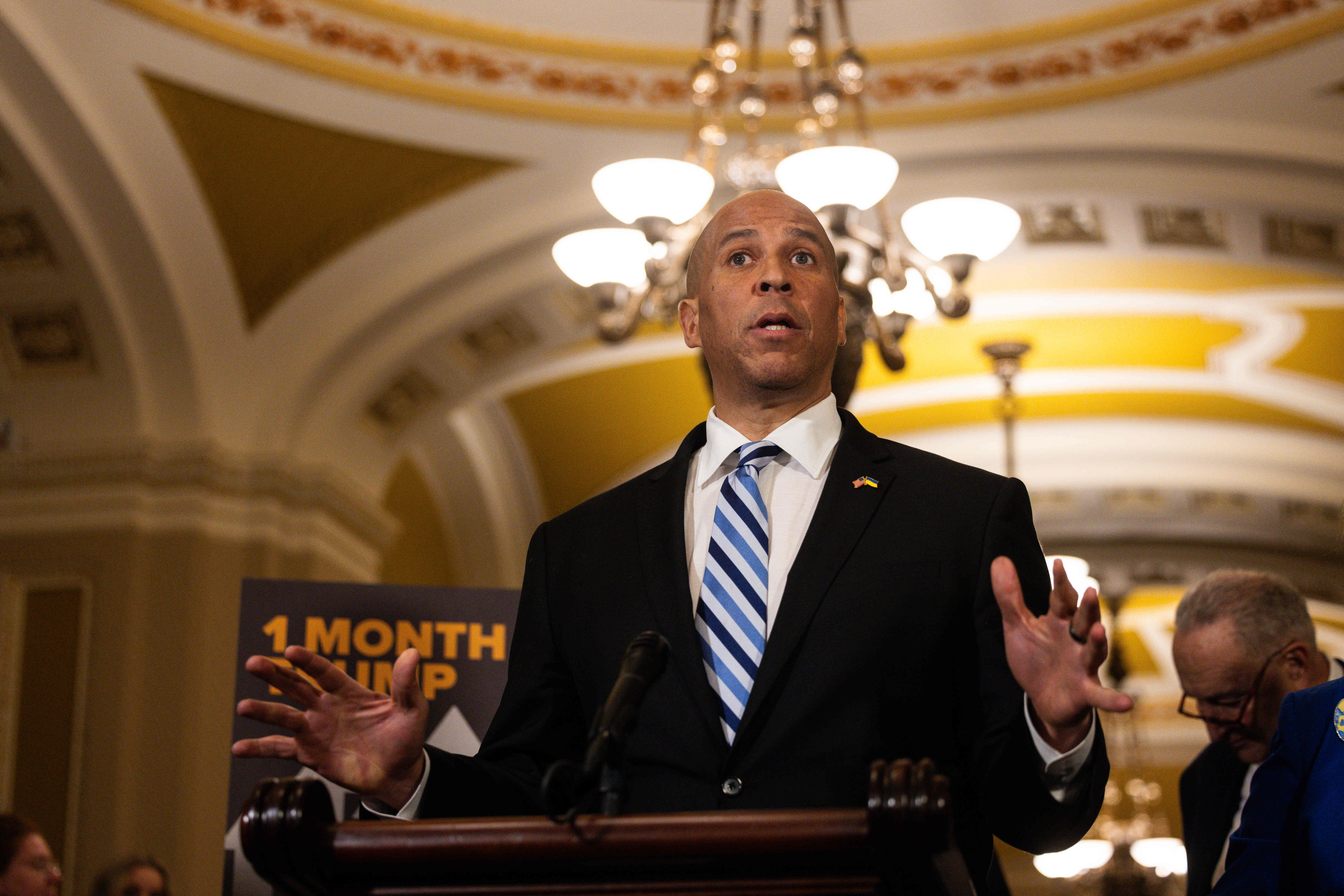🎙️ Voice is AI-generated. Inconsistencies may occur.
A model who served as the first asexual Grand Marshal at New York City Pride has received backlash for her comments about her sexual identity.
Yasmin Benoit is perhaps one of the most recognizable advocates for the asexual community globally and is the founder of the United Kingdom's first asexual rights initiative.
She identifies as asexual, sometimes called ace, which is a sexuality defined as a person who does not experience sexual attraction, according to the LGBTQ+ advocacy group GLAAD.
The Asexual Visibility and Education Network (AVEN) also describes it as an umbrella term for people who may "experience forms of attraction that can be romantic, aesthetic, or sensual in nature but do not lead to a need to act out on that attraction sexually."

Benoit went viral over the weekend when tweeting from the London Pride parade where she marched with LGBTQ+ rights organization Stonewall UK.
"Asexual people deserve equal rights. We deserve legal recognition. We deserve protection. Thank you@stonewalluk for allowing me to march with you again at #PrideInLondon today & for helping me to bring about this change. #ThisIsWhatAsexualLooksLike #IStandWithStonewALL," Benoit tweeted.
The activist spoke with Newsweek about the importance of raising awareness of asexual rights and what that means exactly.
"Asexuality, it's not recognized under the Equality Act (in the U.K.where Benoit lives)," she explained, adding that the National LGBT Survey 2018 conducted by the British government found "that asexual people are 10 percent more likely to be offered or to undergo conversion therapy than other orientations and yet, no one talks about that.
"But everyone in the asexual community knows that this is a very common experience. So that's something I'm raising awareness about."
Asexuality is also still a "medicalized orientation" in the ICD (International Classification of Diseases), the medical manual used in the U.K. and Europe, which "is why our conversion therapy rates are so high," according to Benoit.
Conversion therapy refers to attempts to alter a person's sexuality or gender identity through medical interventions, behavior modification or spiritual counseling.
Asexuality and ace-spectrum identities "are not mental, developmental, or sexual disorders," according to the American Association of Sexuality Educators, Counselors and Therapists (AASECT)
The group said it rejects any idea that reparative or conversion therapies could "fix" asexual people.
"Asexual individuals often face distinct difficulties in obtaining orientation-affirming services due to a lack of cultural sensitivity and a long history of compulsory sexuality within Western cultures," AASECT wrote on its website.
"People who are content with little or no sexual desire toward others commonly experience distress from social stigma and prejudice rather than distress because of their lack of sexual attraction to others."
The group added there were "many myths perpetuated by popular culture regarding asexuality. Some have derided asexuality as something fabricated, a complex, a form of immaturity, a pathology, or inherent loneliness."
Benoit's tweet has been viewed 16 million times since she posted it on July 1, and while many people congratulated her for speaking up and representing asexual people, many replied with negative comments, a fact she found "annoying."
"It is annoying when there's just thousands of comments, many being deliberately obtuse when there's a Wikipedia page about it," Benoit explained. "It's not that hard to find that I wasn't making it up.
"All queer orientations have gone through literally the exact same thing so I don't know what people don't realize that about asexuality as well."
Benoit also pointed out many of her critics were "largely middle-aged white people coming after a 20-something-year-old Black girl, and they don't see anything weird about the optics of that."
One person replied to Benoit on Twitter: "Yay, it's so nice to see someone so open about asexuality. We're not often talked about and rarely ever understood."
Another commented: "Hello! I am a progressive. Can you help me understand what legal rights asexual people don't have? I would love to stand with you, but I need to understand the problem."
One critic wrote: "Legal recognition...? What rights does someone who identifies as 'asexual' not have lmao Who is possibly discriminating against asexuals?"
Asexual people deserve equal rights. We deserve legal recognition. We deserve protection.
— Yasmin Benoit, MSc (@theyasminbenoit) July 1, 2023
Thank you @stonewalluk for allowing me to march with you again at #PrideInLondon today & for helping me to bring about this change. 💜🖤#ThisIsWhatAsexualLooksLike#IStandWithStonewALL pic.twitter.com/1YI0AFA8xe
But other people in the replies described experiences in medical settings where they had faced discrimination at the hands of doctors.
"Another example not mentioned here, is when your doctor REFUSES to prescribe you anti depressants that decrease your sexual drive, since you are asexual. that is an extremely dangerous thing to do," tweeted one person.
And another added: "My doctor tried to force me to get std preventive shots and would not listen. She kept saying she was sure I would have s*x in college and that she didn't trust me when I said I wouldn't. At 21, I had to have emergency surgery and they kept trying to have me take a pregnancy test."
A third wrote: "Healthcare: Aro and Ace people are routinely harassed by providers and forced into unnecessary testing/drugs for not conforming in an effort to 'fix it'
Conversion therapy: Self explanatory
Societal abuse: Simply existing can get you assaulted and abuse hurled."
Update 7/6/23, 1:40 p.m. ET: This article has been updated to clarify asexuality is medicalized under the ICD (International Classification of Diseases) in the U.K. and Europe.
Update 7/5/23, 8:40 a.m. ET: This article has been updated with comment from Yasmin Benoit.
About the writer
Shannon Power is a Greek-Australian reporter, but now calls London home. They have worked as across three continents in print, ... Read more



